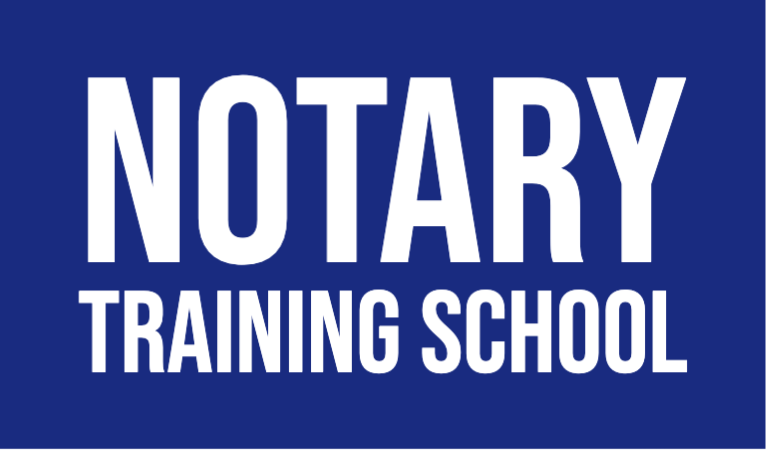Understanding Knowledge Based Authentication in Remote Online Notarization

Remote Online Notarization (RON) has revolutionized the notary industry by providing a secure and convenient way to perform notarizations remotely. With the rise of digital transactions, ensuring the security of these processes is paramount. One of the critical components in maintaining this security is Knowledge Based Authentication (KBA). This article aims to delve into the intricacies of KBA, its role in RON, and how it enhances the overall security of remote notarization processes.
Table of Contents
What is Remote Online Notarization?

Definition and Basic Explanation
Remote Online Notarization (RON) refers to the process where notarizations are conducted online using digital tools and live video conferencing. This method allows notaries to perform their duties without being physically present with the signer. Through RON, signers can have their documents notarized from anywhere in the world, provided they have an internet connection and a device capable of video conferencing.
Evolution and Growth of RON
The evolution of RON has been driven by advancements in technology and the increasing need for remote services. Initially, notarizations required physical presence, limiting flexibility and accessibility. However, as digital transformation accelerated, states began to recognize the need for a more modern approach. This led to the gradual acceptance and legalization of RON across various jurisdictions.
The COVID-19 pandemic further accelerated the adoption of RON, as social distancing measures and lockdowns made traditional notarizations challenging. Notaries and clients alike turned to RON for its convenience and safety. Today, RON is widely accepted and used, with regulations evolving to support this modern approach to notarization.
Benefits of RON for Notaries and Clients
RON offers several benefits, including convenience, efficiency, and the ability to serve clients regardless of their location. For notaries, RON eliminates the need for travel and physical presence, allowing them to handle more appointments and increase their earning potential. It also provides flexibility, enabling notaries to offer their services beyond traditional business hours.
For clients, RON means they can have their documents notarized from the comfort of their homes or offices. This is particularly beneficial for individuals with mobility issues, those living in remote areas, or those with tight schedules. RON also ensures that notarizations can proceed uninterrupted during times of crisis or when travel is restricted.
The Importance of Security in Remote Online Notarization

Potential Risks and Challenges in RON
Security is a cornerstone of the notarization process, and this is even more critical in a remote setting. The potential risks and challenges associated with RON include identity fraud, document tampering, and unauthorized access to sensitive information. Unlike in-person notarizations, where physical presence allows for direct verification of identity, RON relies on digital means, which can be susceptible to cyber threats.
Legal and Regulatory Requirements for RON Security
Legal and regulatory requirements mandate stringent security measures to ensure the integrity of the notarization process. Various states have established specific guidelines and standards for RON, often including the need for secure video conferencing, digital certificates, and robust identity verification methods. Notaries must adhere to these regulations to maintain their credentials and protect the validity of notarized documents.
Role of Notaries in Ensuring Secure Transactions
Notaries play a vital role in upholding these standards by verifying the identity of signers and ensuring the authenticity of documents. This involves not only using the appropriate technological tools but also maintaining vigilance against potential fraud attempts. By implementing robust security protocols, such as KBA, notaries can significantly mitigate the risks associated with RON and uphold the trust and integrity of the notarization process.
Understanding Knowledge Based Authentication (KBA)

Definition and Explanation of KBA
Knowledge Based Authentication (KBA) is a security measure used to verify the identity of individuals based on information that only they should know. In the context of RON, KBA involves presenting the signer with a series of questions derived from public and private databases. These questions typically relate to the individual’s personal history, such as past addresses, financial transactions, or other unique identifiers.
How KBA Works in the Context of RON
In RON, KBA serves as a crucial step in the identity verification process. The signer must correctly answer a certain number of these questions within a specified time frame to pass the authentication process. The questions are dynamically generated and unique to the individual, making it difficult for anyone other than the rightful owner to pass the authentication. This ensures that the person participating in the notarization is indeed who they claim to be.
Types of Questions Used in KBA
The types of questions used in KBA can vary but generally fall into categories such as:
- Personal History: Questions about previous addresses, phone numbers, or past employment.
- Financial Transactions: Questions related to recent credit card transactions, loan applications, or bank account details.
- Public Records: Questions about property ownership, vehicle registration, or court records.
These questions are designed to be answered correctly only by the individual being authenticated, thereby providing a robust means of verifying identity.
How KBA Enhances Security in Remote Online Notarization

Verification Process Through KBA
KBA significantly enhances the security of RON by adding an additional layer of verification. During the KBA process, the signer is required to answer questions that are dynamically generated and unique to their personal history. This makes it extremely difficult for anyone other than the rightful owner to pass the authentication. The dynamic nature of the questions ensures that they are not easily guessed or shared.
Advantages of Using KBA in RON
KBA offers several advantages in the context of RON:
- High Accuracy: The questions are specific to the individual, ensuring a high level of accuracy in verification.
- Fraud Prevention: By requiring detailed personal information, KBA helps prevent identity fraud and unauthorized access.
- User Convenience: Signers can complete the KBA process quickly and easily, making it a convenient option for identity verification.
Comparison with Other Authentication Methods
When compared to other authentication methods, such as knowledge-based passwords or biometric verification, KBA provides a unique combination of security and user-friendliness. Passwords can be compromised through phishing attacks, and biometric methods may require additional hardware. KBA, on the other hand, leverages existing data and can be implemented using standard digital platforms, making it both effective and accessible.
Implementing KBA in Remote Online Notarization

Steps for Notaries to Integrate KBA into Their Practice
For notaries looking to implement KBA in their RON practices, several steps and considerations are involved:
- Choose a Reliable RON Platform: Notaries need to select a RON platform that supports KBA. These platforms typically integrate with third-party services that specialize in identity verification.
- Understand the KBA Process: Notaries should familiarize themselves with the KBA process and ensure they understand the requirements and limitations.
- Inform Clients: It’s important to inform clients about the KBA process beforehand and provide clear instructions on what to expect.
- Follow Best Practices: Adopting best practices, such as ensuring a smooth and transparent experience, will help notaries effectively incorporate KBA into their RON services.
Tools and Platforms That Support KBA
Several tools and platforms support KBA for RON. These include:
- DocVerify: Offers integrated KBA services as part of its RON platform.
- Notarize: Provides KBA as a standard feature, ensuring secure and compliant notarizations.
- Signix: Includes KBA in its suite of identity verification tools for notaries.
By using these tools, notaries can ensure they meet the required security standards while providing a seamless experience for their clients.
Best Practices for Effective KBA Implementation
To ensure effective KBA implementation, notaries should:
- Stay Informed: Keep up to date with the latest regulations and best practices for KBA and RON.
- Educate Clients: Provide clients with clear information about the KBA process and its importance.
- Test the System: Regularly test the KBA system to ensure it functions correctly and efficiently.
- Seek Feedback: Collect feedback from clients to identify any issues and improve the process.
Challenges and Limitations of KBA in RON

Common Issues Faced with KBA
While KBA is a robust authentication method, it does come with certain challenges and limitations. One common issue is that some individuals may have difficulty answering the KBA questions due to outdated or incorrect information in the databases. This can result in legitimate users failing the authentication process.
Limitations and Potential Drawbacks
KBA relies on the availability of accurate and comprehensive data, which may not always be accessible for all individuals. Additionally, some users may find the questions intrusive or difficult to answer. There is also the risk of database breaches, which could compromise the security of the KBA system.
Solutions and Alternatives to Address These Challenges
To address these challenges, notaries can consider alternative authentication methods, such as biometric verification or enhanced identity verification protocols. These methods can be used in conjunction with KBA to provide a more inclusive and reliable solution. Additionally, ensuring that the data used for KBA is regularly updated and accurate can help mitigate some of the common issues.
Conclusion
Knowledge Based Authentication is a critical component in ensuring the security and integrity of Remote Online Notarization. By requiring individuals to verify their identity through questions based on their personal history, KBA provides a strong deterrent against fraud and unauthorized access. As RON continues to gain popularity, the adoption of KBA and other advanced security measures will be essential in maintaining trust and reliability in the notarization process. Notaries are encouraged to embrace these technologies to enhance their services and provide secure and efficient remote notarizations for their clients.






Responses